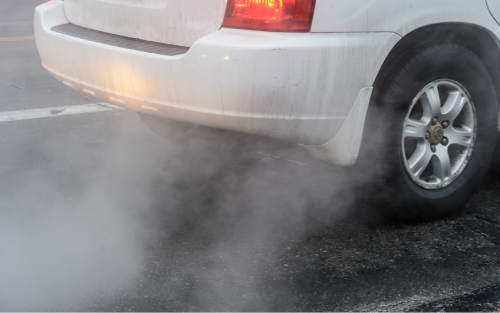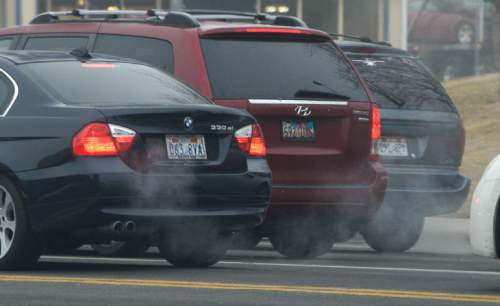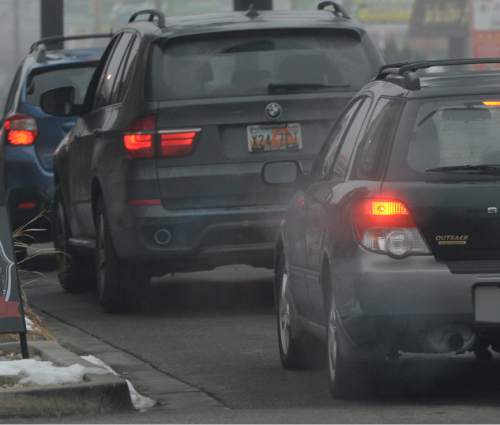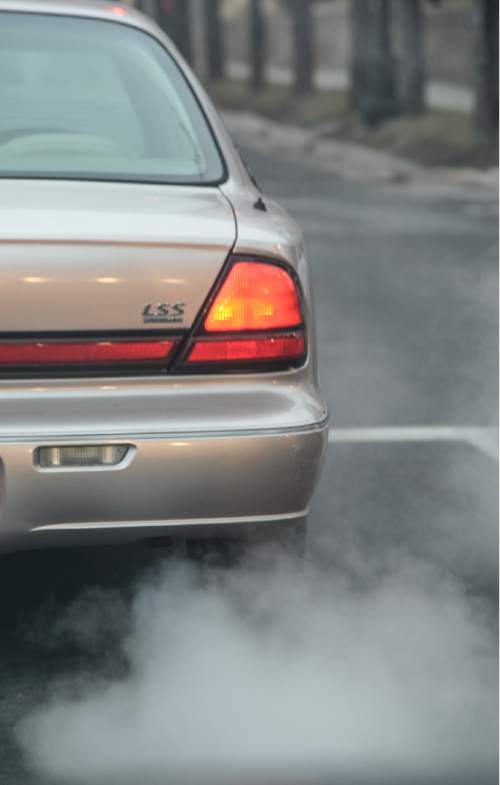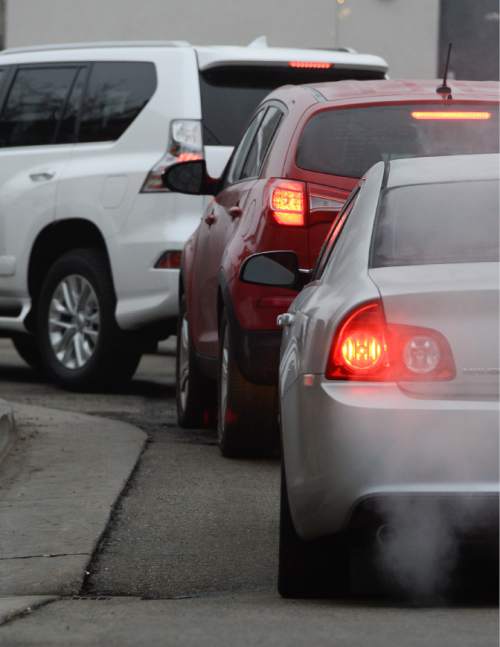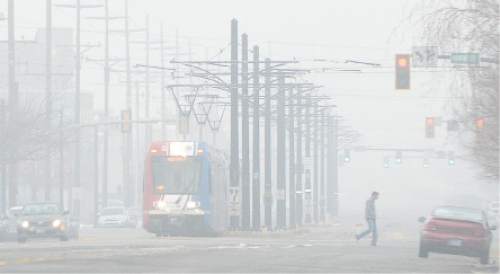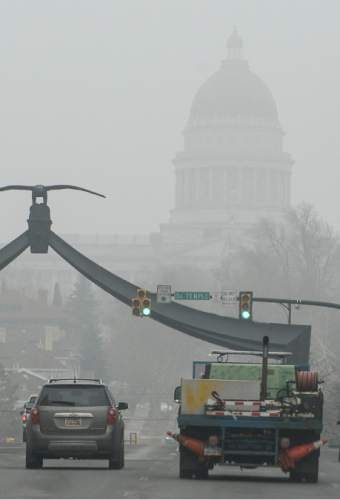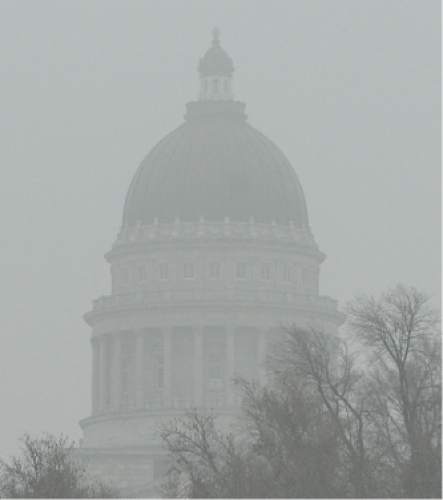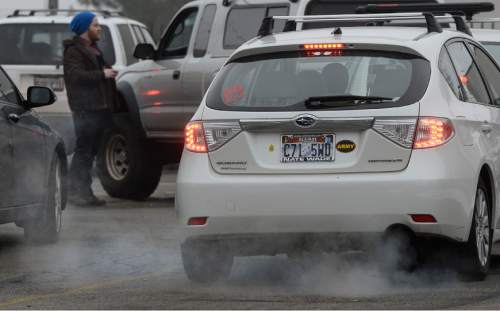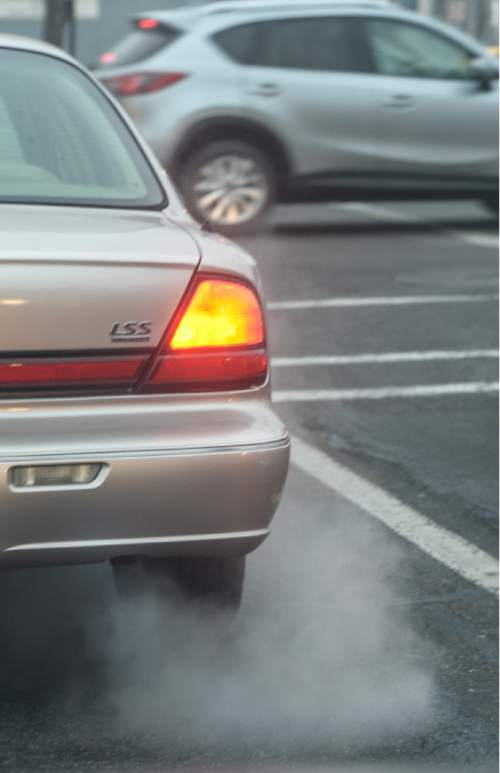This is an archived article that was published on sltrib.com in 2016, and information in the article may be outdated. It is provided only for personal research purposes and may not be reprinted.
Worried about this week's unhealthy air conditions? There's a simple step you can take to reduce your own emissions, Utah scientists say: Don't idle your car to warm it up.
The practice is a sizable source of emissions and is widespread in Utah — last month Salt Lake City police found 600 unattended, idling vehicles in the space of three hours. But, according to Joe Thomas, an air-quality manager for the Utah Division of Air Quality, it is unnecessary.
Thomas said some people believe that driving a car before the engine warms up can cause mechanical problems. But for modern cars, all idling does is release a lot of emissions, he said.
"Today's car doesn't need a warm-up cycle," he said. "Just start the car and drive."
The catalytic converter, a key part of a car's emissions-control system, doesn't function properly until it's warm, and the so-called "cold start" period before it does is responsible for roughly 75 percent of a vehicle's emissions during an average trip to work or to the store, Thomas said. But a car warms up faster when it is being driven, he said, so leaving it idling to "warm it up" actually extends the "cold start" period and increases the vehicle's emissions.
Idling technically violates Salt Lake City ordinance, but the 600 drivers caught letting their vehicles idle last month were given educational materials, not cited, said Matthew Rojas, director of communications for the Salt Lake City mayor's office.
Compliance with the ordinance is essentially voluntary, Rojas said. "It's really a quote-unquote 'unenforceable' ordinance," he said.
Vicki Bennett, director of Salt Lake City's Office of Sustainability, said the city's enforcement officers who issue parking tickets have the authority to give tickets for idling. But the number of citations is probably small, she said; most idlers receive warnings.
Thomas said it takes a long time for a warm car to cool down to the point that it requires a cold start, so idlers waiting outside a store or school are not doing their cars any favors and are just contributing to air pollution and wasting gas.
Warming up the car in the morning also offers "an open invitation for someone to just take your vehicle," said Donna Spangler, a spokeswoman for the Utah Department of Environmental Quality.
The Salt Lake City police investigation was prompted by a rash of nearly 60 car thefts related to unattended idling vehicles.
Thomas said those with garages should use them during inversions. The inside of a garage is usually warmer than the outdoor temperature, he said; storing a car in a garage overnight will prevent the car from getting so cold in the first place, reducing the length of the cold start cycle.
"There are small things people can do to help [improve air quality] even if they have to drive," Thomas said.
Twitter: @EmaPen


